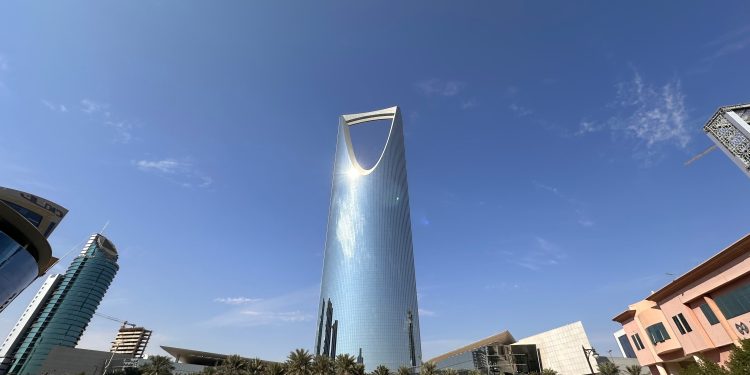Saudi Arabia’s Economic Growth Surpasses Expectations
Saudi Arabia’s finance minister, Mohammed Al-Jadaan, addressed the World Economic Forum, emphasizing that the International Monetary Fund’s (IMF) recent GDP forecast doesn’t capture the full economic picture. Although the IMF adjusted Saudi Arabia’s 2025 GDP growth to 3.3% due to oil production cuts, Al-Jadaan highlighted the robust growth of the non-oil sector.
Under Vision 2030, the Kingdom is prioritizing economic diversification. Al-Jadaan pointed out the significant rise in private-sector investment, which has increased from 16-17% to 24% of GDP. This growth indicates substantial structural changes underway in the country.
Despite having the capacity to increase oil production, Saudi Arabia is strategically limiting it to focus on sustainable growth. Al-Jadaan cautioned against relying solely on GDP as a growth measure, advocating for a broader view that includes other indicators.
With historically low unemployment and a thriving private sector, Saudi Arabia is committed to making tough decisions for long-term economic health. Al-Jadaan stressed the potential of artificial intelligence (AI) in the Kingdom’s diversification efforts, suggesting a future where Saudi Arabia might export data instead of oil.
To support AI development, the Kingdom is investing in clean energy, land for renewable projects, fiber-optic networks, and a skilled workforce. Saudi Arabia’s competitive advantages include producing low-cost solar energy and having agile government policies for swift licensing and approvals. The government is also enhancing data center security to international standards.
Al-Jadaan noted Saudi Arabia’s leadership in government cybersecurity, managed entirely by Saudi talent. Discussing the broader Middle East and North Africa (MENA) region, he expressed optimism about its future despite challenges like high youth unemployment and geopolitical issues. He emphasized the region’s youthful, tech-savvy population and natural resources as strengths.
Al-Jadaan called for regional stability and reforms to unlock potential, envisioning a transformed region with the right governance and technological advancements.


